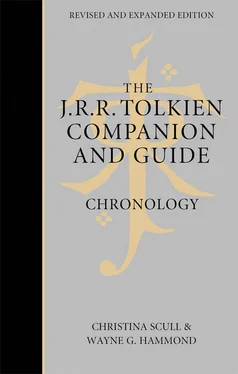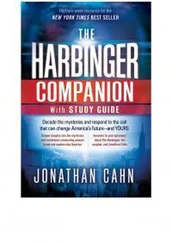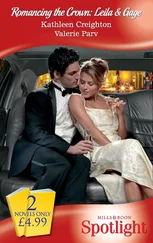June 1911Ronald edits the June number of the King Edward’s School Chronicle and writes the editorial. As Debating Society Secretary, he almost certainly writes the report of the meeting of the Society on 4 April that appears in the same number. In an account of the members of the Debating Society Ronald is described as ‘an energetic Secretary who does not consider that his duties excuse him from speaking. Has displayed great zeal in arranging meetings throughout the session and considerable ingenuity in advertising them. He is an eccentric humorist who has made many excellent speeches, at times rather burdened with anacolutha. Made one valiant effort to revive Beowulfic oratory’ (‘Debating Society’, n.s. 26, no. 187 (June 1911), p. 45).
June or July 1911Ronald writes a poem about King Richard I and the Crusaders, A Fragment of an Epic: Before Jerusalem Richard Makes an End of Speech . See note .
15 June 1911The annual inspection of the King Edward’s School Officers Training Corps takes place. The cadets exhibit their drilling abilities to Major W.L. Loring. Measures’ House, of which Ronald is a member, comes third out of four in the competition for the House Drill Shield.
21 June 1911Ronald travels to London as one of eight cadets from the King Edward’s School Officers Training Corps chosen to line the route for the coronation of George V. At about 11.00 a.m. they arrive at Lambeth Park, adjoining Lambeth Palace, where they join other cadets in a camp. The cadets are then free until the evening when all the assembled corps are drilled by the company commander, Major F.M. Ingram of Bradfield College. Ronald will later recall that the year 1911 was ‘the annus mirabilis of sunshine in which there was virtually no rain between April and the end of October, except on the eve and morning of George V’s coronation’ (letter to Michael Tolkien, c. 25 August 1967, Letters , p. 391). See note .
22 June 1911Reveille is sounded at 4.45 a.m. At about 6.00 a.m. the cadets march along the Albert Embankment by way of Vauxhall Bridge to Constitution Hill adjoining Buckingham Palace. They arrive at about 7.00. The various processions do not leave the Palace until 9.30; in the interim the cadets are able to watch various troops moving into position and to see Lord Roberts and Lord Kitchener pass by. The King’s procession sets out at 10.30, but the cadets catch only a glimpse as it travels down the Mall and does not pass in front of them. They then have another long wait until, soon after 2.00 p.m., the procession returns from Westminster Abbey along Constitution Hill immediately in front of the cadets and provides them with ‘a spectacle never to be forgotten’ (‘The Coronation’, King Edward’s School Chronicle n.s. 26, no. 188 (July 1911), p. 60). They are too far away to witness the Royal Family’s appearance on the balcony of Buckingham Palace, and are then marched back to camp.
23 June 1911The cadets help line the streets for a Royal Progress and are in position near Buckingham Palace soon after 8.00 a.m. At 11.00 a.m. the Royal Family leave the Palace. According to the reporter for the King Edward’s School Chronicle – possibly Ronald Tolkien himself – the procession ‘was even more gorgeous than that of the previous day’. The cadets do not wait for the return of the procession but march back to camp for dinner and then return to Birmingham, arriving at about 10.30 p.m. ‘with the feeling that we had had the experience of our lives’ (‘The Coronation’, July 1911, p. 60).
29 June and 1 July 1911Ronald attends the King Edward’s School Athletic Sports at the School Grounds. He comes third in the One Mile Open race.
July 1911Ronald edits the July number of the King Edward’s School Chronicle and writes at least the editorial. – King Edward’s School awards Ronald the Milward Exhibition, worth £50.
July 1911–April 1912At some time during this period Ronald will present two books to the King Edward’s School library: The Lost Explorers: A Tale of the Trackless Desert by Alexander Macdonald (1906), a novel about the Australian Outback, and Scouting for Buller by Herbert Hayens (1902), a novel about the Boer War. See note .
2 July 1911Seventy-six cadets from King Edward’s School travel by special train to Windsor Great Park to participate in a review of the Officers Training Corps by King George V.
3 July 1911547 officers, 17,440 non-commissioned officers and men, 470 horses, and 14 guns take part in a display of ‘manly patriotism’ ( The Times , 3 July 1911, p. 7). A longer report in the Times of 4 July waxes eloquent about the event ‘among the ancient oak trees’ of Windsor Great Park ‘in glorious summer foliage’. The massed Corps ‘practically represented the entire intellectual reinforcement that the Military Services controlling the Empire will receive five or six years hence. It was no mummer’s rabble that defiled before the King, it was no semi-organized collection of train bands; it was a force of young soldiers, led by seasoned soldiers, trained by seasoned soldiers, quitting themselves like men, like citizens of a great Empire’ (p. 9).
8 July 1911Jane Neave and Ellen Brookes-Smith (*Brookes-Smith family) become joint owners of Church Farm (to be renamed Phoenix Farm), Manor Farm, and adjoining parcels of land in Gedling.
26 July 1911Summer term and Ronald’s time at King Edward’s School end with Speech Day and prize-giving, followed by musical and dramatic performances. Ronald is one of six recipients in the Classical First Class of the Head Master’s Leaving Prizes. The final item on the programme is a performance in Greek of Aristophanes’ play The Peace in which Ronald takes the part of Hermes, W.H. Payton is Trygaeus, Christopher Wiseman is Sicklemaker, Rob Gilson is Crestmaker, R.S. Payton is the Trumpet Seller, and T.K. Barnsley is in the Chorus. (Aristophanes’ Peace is summarized in a printed programme: ‘Trygaeus an Athenian farmer weary of the long war decides to drag up Peace to the light from the pit in which she is buried. With the aid of a number of his friends and the god Hermes he achieves this object in spite of the opposition of sundry interested persons….’) The evening closes with the national anthem sung in Greek. Ronald will later recall that ‘the school-porter was sent by waiting relatives to find me. He reported that my appearance might be delayed. “Just now,” he said, “he’s the life and soul of the party.” Tactful. In fact, having just taken part in a Greek play, I was clad in a himation and sandals, and was giving what I thought a fair imitation of a frenzied Bacchic dance’ (quoted in Biography , p. 49). See note .
August 1911The Oxford and Cambridge Schools Examination Board issue a report on King Edward’s School, Birmingham. In this – prepared evidently in the Board’s role as examiner of schools or school programmes rather than of individual students – Tolkien and some of his friends are singled out for mention for their work in Class 1 on Roman history:
The best work was undoubtedly done by [Robert Q.] Gilson in both papers…. [F.T.] Faulconbridge and [Sidney] Barrowclough were also very fair, and shewed considerable promise. Tolkien gave signs of a more acute and independent judgement than anyone else; his style also was more matured, but he seemed to have no control over it and sometimes became almost unintelligible; he was also very irrelevant, particularly on the Special Period, in which he only attempted four questions.
Читать дальше












